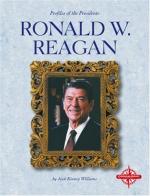|
This section contains 3,946 words (approx. 14 pages at 300 words per page) |

|
From the time American colonists first began to consider breaking from England to form their own system of government, lively discussion has occurred among Americans over the extent of powers their government should have. When ratification (formal approval) of the Constitution was debated in the late 1780s, some notable patriots argued that the federal government it described would wield too much authority over individual states. States' rights versus federal power has remained a heated issue since the earliest days of the nation.
In the twentieth century, federal powers expanded in such areas as government regulation of business and banking and in the enactment of social welfare programs (government programs, supported by tax money, that provide financial assistance, training, and jobs). The New Deal program of Franklin D. Roosevelt (1882-1945; see entry in volume 4) during the 1930s, the Fair Deal program of Harry S. Truman (1884-1972; see...
|
This section contains 3,946 words (approx. 14 pages at 300 words per page) |

|



